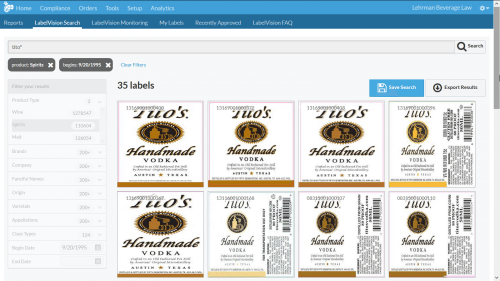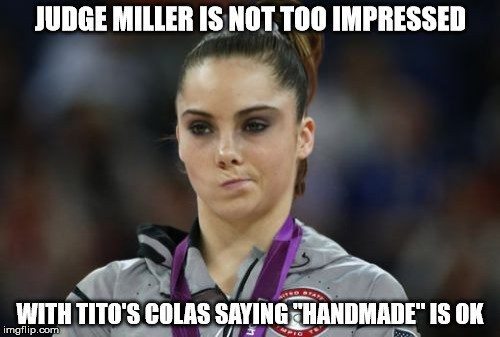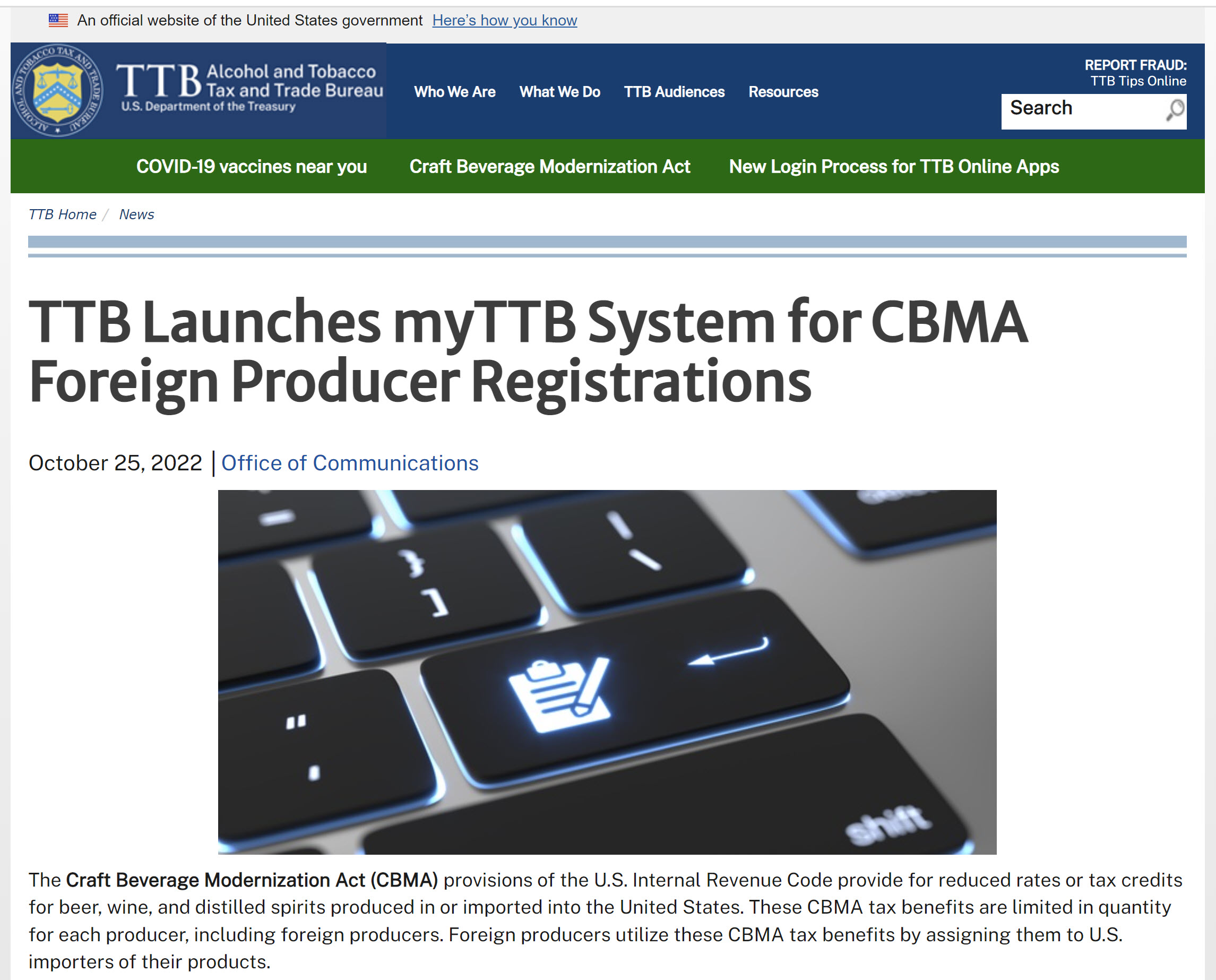There is big news out of a federal court in San Diego. On Friday, the judge in two of the Tito’s labeling cases said it, loud and clear. Words matter — on labels. This is important because it was starting to get very confusing, what with all the label cases floating around, and many dismissals. There are at least eight separate Tito’s cases scattered around the country, and a couple dozen alcohol beverage litigations pending in recent months. Along the way, Judge Miller made it clear he is not too impressed with the rigor of TTB’s label review system, or the fact that the Tito’s “Handmade” Vodka labels have been approved on many occasions.
On Friday, November 20, 2015, in the U.S. District Court for the Southern District of California, Judge Jeffrey Miller issued two very similar Orders in two separate cases against Tito’s Vodka. The cases are:
– Hofmann v. Fifth Generation
– Cabrera v. Fifth Generation
In hindsight, Judge Miller’s November 20th Orders seem obvious. If the claim meant little to nothing, why would Tito spend zillions of dollars to make sure everyone knows his vodka is “handmade”? Why else would it be the main word on the main label, and throughout his marketing? Why else would it work so well, to shoot this brand to the top of a tall and slippery pole? In recent months Tito has argued that the term is mere puff. But I can’t think of any puff term that has a prayer of moving the bottles as well as a term, such as the one at issue, with a little more grit and traction. I don’t see the terms “premium,” “finest,” “smooth,” or any other agreed-upon puff terms getting anyone far, as compared to a term that is much more likely to actually mean something.

The Orders tend to say that TTB approval of the label and term at issue are determinative only to the extent TTB conducted a rigorous review. It is hard to say TTB’s review is other than non-rigorous, inasmuch as TTB quite clearly said they don’t even have any standards or rules around such a term. The plaintiffs argued, and the Judge agreed (in the Hofmann and Cabrera Orders), that “a federal regulator’s actions create a safe harbor only … where the agency’s actions ‘were the result of a formal, deliberative process akin to notice and comment rulemaking or an adjudicative enforcement action,’ and are therefore sufficiently formal to merit Chevron deference.” I have been interacting with TTB’s label review system on a daily basis for more than 25 years now. It would be preposterous to claim that the system has been anything close to formal, deliberative, or similar to an adjudication. Most of the time, no lawyers or neutrals are involved. Most of the time there is no evidence, and there are no evidentiary rules. Many times the system has all the rigor of a bouncer, at the trendiest nightclub, deciding whether you are cool enough to enter the club. Far less often, the system involves knowledgeable people, on opposing sides of an issue, with a plausibly neutral decisionmaker.
It is quite easy to illustrate this. Take a competing vodka; let’s call it Pedro’s. Pretend Pedro’s Vodka is demonstrably distilled in a humongous vodka plant, outside Texas, and shipped to Dallas in railroad …
Continued here





i wholeheartedly agree. There shouldn’t be any puff when it comes to knowing how alcohol is made. If Titos ain’t made in Texas. It ain’t shit. What’s up with all the copper looking distillery equipment made as their label? Is there any copper involved or are they just manipulating the label color?
Very dissapointed. Won’t be drinking Titos if all this is evidence founded.
Great post concerning the Tito lawsuit in San Diego federal court. It is rather incredible the types of lawsuits being filed in San Diego and no doubt you will continue to cover cutting edge and unique cases such as the Tito’s case. Keep up the good work covering beverage law issues!